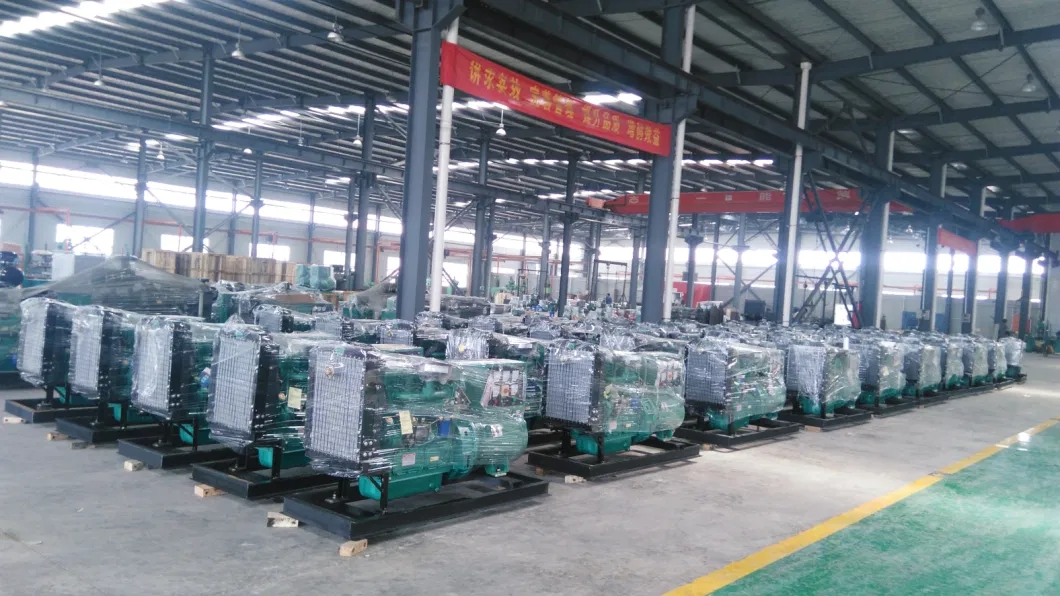Introduction
Salt spray testing is a crucial method used in various industries to assess the corrosion resistance of materials and coatings. It involves exposing test samples to a salt-laden environment to simulate the corrosive effects of saltwater and assess the durability of the materials under test. To conduct salt spray testing effectively, a reliable and consistent source of power is essential. Diesel generators have proven to be a popular choice for providing the necessary power for salt spray testing due to their reliability, efficiency, and durability.
In this article, we will explore the key benefits of using diesel generators for salt spray testing, their importance in ensuring accurate and consistent test results, and the factors to consider when selecting a diesel generator for this specific application.
Benefits of Using Diesel Generators for Salt Spray Testing
1. Reliability: One of the primary advantages of diesel generators is their reliability. Salt spray testing requires continuous and uninterrupted power supply to maintain the testing conditions throughout the duration of the test cycle. Diesel generators are known for their robust design and ability to operate continuously for extended periods without interruptions, making them an ideal choice for salt spray testing applications.
2. Durability: Diesel generators are built to withstand harsh operating conditions, making them well-suited for use in salt spray testing environments. The corrosive nature of salt spray can be detrimental to the performance of electrical equipment, but diesel generators are designed to be corrosion-resistant and durable, ensuring consistent operation even in corrosive environments.
3. Fuel Efficiency: Diesel generators are known for their fuel efficiency, which is a significant advantage for salt spray testing applications that require long test cycles. The high energy density of diesel fuel allows diesel generators to generate more power with less fuel consumption compared to other types of generators, resulting in cost savings and reduced environmental impact.
4. Power Output: Diesel generators are capable of providing high power output, making them suitable for powering the various components of a salt spray testing chamber, such as pumps, heaters, and fans. The consistent and stable power output of diesel generators ensures that the testing conditions remain constant throughout the test cycle, enabling accurate and reliable test results.
Importance of Diesel Generators in Salt Spray Testing
1. Consistency: Consistency is key in salt spray testing to ensure accurate and reliable results. Fluctuations in power supply can disrupt the testing conditions and compromise the integrity of the test results. Diesel generators provide a stable and constant source of power, ensuring that the testing conditions remain consistent throughout the test cycle.
2. Precision: Salt spray testing requires precise control of the testing parameters, such as temperature, humidity, and spray concentration. Diesel generators play a critical role in maintaining the necessary conditions within the testing chamber, enabling precise control over the testing environment and ensuring that the test results are accurate and reproducible.
3. Compliance: Many industries, such as automotive, aerospace, and marine, have specific standards and regulations governing salt spray testing procedures. Using diesel generators that meet industry standards for emissions, noise levels, and performance ensures compliance with regulatory requirements and helps to maintain the credibility of the testing results.
4. 150kw diesel generator for remote drilling operations : Diesel generators are versatile power sources that can be easily integrated into existing salt spray testing setups or custom-designed to meet specific testing requirements. Their compact size and portability make them suitable for both laboratory-scale testing applications and large-scale industrial testing facilities.
Factors to Consider When Selecting a Diesel Generator for Salt Spray Testing
1. Power Requirements: The power requirements of the salt spray testing chamber and associated equipment determine the size and capacity of the diesel generator needed. It is essential to calculate the total power consumption of all components to select a generator with adequate power output to meet the testing needs.
2. Fuel Efficiency: Consider the fuel efficiency of the diesel generator to minimize operating costs and reduce environmental impact. Look for generators with advanced fuel injection systems and efficient engine designs that optimize fuel consumption without compromising performance.

3. Emissions Compliance: Ensure that the diesel generator meets emissions regulations and standards to minimize air pollution and environmental impact. Select generators with advanced exhaust after-treatment systems, such as diesel particulate filters and selective catalytic reduction, to reduce harmful emissions.
4. Noise Levels: Salt spray testing environments require a quiet and controlled atmosphere to prevent interference with the testing process. Choose diesel generators with low noise levels and soundproofing features to minimize noise pollution and maintain a conducive testing environment.
5. Maintenance Requirements: Regular maintenance is essential to ensure the reliable operation of the diesel generator and prevent unexpected downtime during testing. Consider the maintenance requirements of the generator, such as service intervals, spare parts availability, and technical support, when selecting a generator for salt spray testing.
Conclusion
Diesel generators play a crucial role in enhancing the effectiveness and reliability of salt spray testing by providing a consistent and reliable source of power for testing chambers and associated equipment. Their durability, fuel efficiency, and power output make them well-suited for salt spray testing applications in various industries, ensuring accurate and reproducible test results.
When selecting a diesel generator for salt spray testing, consider factors such as power requirements, fuel efficiency, emissions compliance, noise levels, and maintenance requirements to choose a generator that meets the specific needs of your testing setup. By investing in a high-quality diesel generator, you can enhance the efficiency and accuracy of your salt spray testing procedures and ensure compliance with industry standards and regulations.
